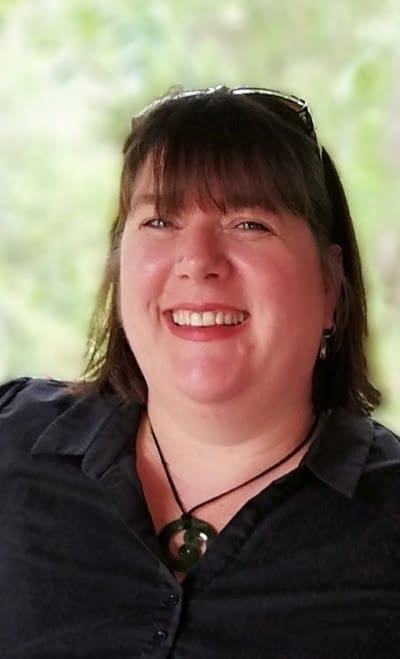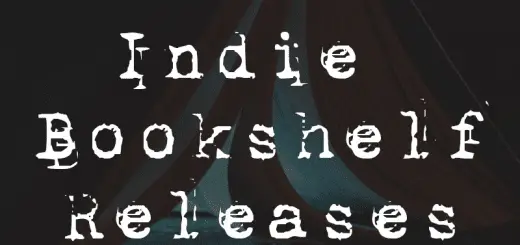Horror is a Feminist Genre

Horror is a feminist genre
by: Piper Mejia
You can’t discuss horror without talking about Frankenstein, Mary Shelley, her life and the influence of her feminist-author mother, Mary Wollenstonecraft. It is a point of ego to know that Shelley’s Frankenstein was not the monster, but rather the creator, and, by extension, the symbol of the monstrous things men do. Sure, it doesn’t pass the Bechdel Test, a result of the time in which it was written, but the book has remained a touchstone of horror and, in its own way, a lasting accolade for feminism. Yet, many women authors reject any association of their work with horror or the implication that horror reflects feminist ideals.
Horror tropes play on our fear of the unknown, of pain (torture), betrayal (sometimes by our own bodies and minds), and entrapment. How does this list differ from the issues feminists expose in order to create a more inclusive world? Google a list of feminist authors or feminist writing and the suggestions will repeat themselves: The Handmaid’s Tale by Margret Attwood, The Story of an Hour by Kate Chopin, and The Yellow Wallpaper by Charlotte Perkins Gillman. Though not one of these authors claim their work as horror many of their audience do, as what could be more horrifying than being an enslaved breeder, dying of fear after believing you have escaped, or being held captive while you slowly lose your grasp on reality.
In fact, each wave of feminism is clearly duplicated by the literature of the horror genre. The Lottery by Shirley Jackson was published in 1948 during the Second Wave of feminism, a wave defined by the sexism and sexuality backlash to the idea that women were happy in our domestic role in society; coined by the phrase “personal is political”. In Jackson’s iconic story, a husband is selected through a lottery to be stoned. The reason for the stoning is not given, just like the roles and expectations placed on women are never justified, and the way these roles are used to control and limit women is never acknowledged. The symbolism of the lottery in choosing a ‘winner’ for stoning is extended to the women’s inability to choose their own ticket if they have a husband or a son over 16 years of age. This is the author’s nod at the suffragette movement—The First Wave of feminism—and women’s inability to make or influence the laws that control them. The story ends with the wife coming to her husband’s defense at being chosen, claiming that he wasn’t ‘given enough time’. The wife’s reaction to her husband’s imminent death reflects our own complacency in the face of inequality, that is, until it affects our own lives. If the reverse had been true, one wonders if the husband would have rushed to his wife’s defense? Though written 70 years ago the story resonates as a metaphor for the current #METOO movement, where trolls on the internet attack women for speaking up, claiming that it is ‘not all men’ and that men are also ‘victims of sexual harassment’ in an attempt at false equivalency.
I question women authors who claim they do not write horror. How can they say their writing is not influenced by their own the restrictive upbringing; one which has been shaped by culture and society simply because they were born a girl. Yes, authors can say they are neither feminist nor horror authors, but it is the audience’s response to their stories that define their genre. Horror is fiction, and feminist fiction addresses women’s inequality, so whether it was the author’s intent or not, fiction that explores the fears caused by inequality can only be acknowledged as both. No one argues that Misery by Stephen King is a horror (the story of a man abused and held captive for less than a year), yet Room by Emma Donoghue, (the story of a woman abused while being held captive for almost a decade) is categorized under the generic genre of ‘novel’. It is dishonest to dismiss the horror of a story simply because Misery is fiction that is unlikely to happen, but Room is all too real as it has happened to too many women.
So, what is modern horror literature illuminating? The Third Wave of feminism is defined as Intersectional Feminism, where race, ethnicity, class, religion and nationality come under scrutiny and diversity becomes a rallying cry of equity. Modern horror New Zealand author Lee Murray, draws on her Chinese heritage and the way tradition has shaped her upbringing and the person she has become. “Writing horror has always been a transgressive, subversive act. Whether we are writing from a sense of unease or from full on nerve-shredding panic, horror offers women a place to explore our basest fears, to address those subjects which must remain unspoken in acceptable society. And yet, even while writing horror, I wish I were braver. With fiction, we can claim the safety of distance, telling our horrors through character and metaphor. Setting our stories in distant worlds. Giving our heroine a fighting chance. In this way, writing horror fiction serves as both a sword and a shield. But when our fiction is also speculative, there is a hope for a real-world solution…” It is not a matter of Murray choosing to write horror but rather that horror is the one honest genre that can reveal the struggles in the lives of women.
In writing The Better Sister a collection exploring the complexity of the sister relationship, no other genre, other than horror, can completely reflect what my characters face in trying to forgive, forget, flee, or destroy what they fear. The sisters in each story are unable to tear apart the world that has shaped them, despite wanting to make amends or find absolution. Like the stages of grief, they stumble from naïvety, denial, anger, until they finally reach acceptance. But even in the end they are twisted versions of the people they might have been, if they had not been women.
It is cliché to say that what doesn’t kill you makes you stronger, but old women are the strongest people I know. Their lives are littered with the horrors they have survived, just like the monster in Frankenstein, yet they too deny the inequity they faced along the way. There is no defined Fourth Wave of feminism, but if there was it would be a wave of reckoning, a period when we would no longer shy away from the very labels that make us stronger, declaring that we are the monster that has survived and I would implore my sister to let it begin with casting off the stigma of having their work acknowledged as both being horror and feminist.

Piper Mejia
Author
Piper Mejia is an advocate for New Zealand writers and literature and is a co-founder of Young NZ Writers – a non-profit dedicated to providing opportunities for young NZ writers. Her short fiction has appeared in a range of publications including Babyteeth, Conclave, Spec-Fic Short Cuts, Short Cuts Track 1, Te Korero Ahi Ka and Tricksters Treats 3. A collection of her short stories, The Better Sister, will be published by Breach in July 2020. As a child, Piper stayed up late laughing at horror films. As an adult, she spends a lot of time being disappointed by plot holes and yet somehow, she has never lost her love for Science Fiction and Horror; two genres that continue to ask the question “What if …” You can find her on New Zealand Society of Authors, Specific NZ and Tauranga Writers.











